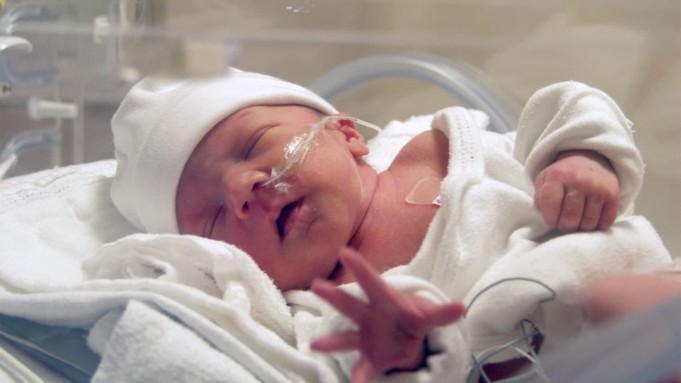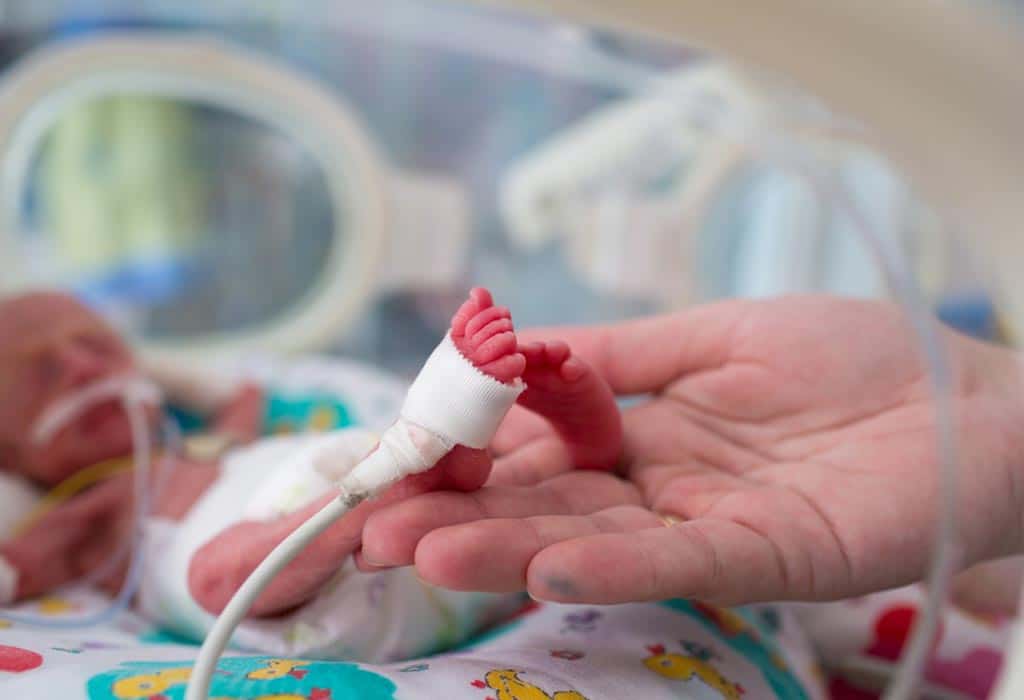Preterm birth which is also known as a Premature birth is child delivery before the end of a pregnancy term.
A term in pregnancy means 37 completed weeks and a normal pregnancy last about 37 to 40 weeks. If a birth takes place more than three weeks before the baby’s estimated due date, it is also known as Premature or Preterm birth.
Pregnant women also have an increased chance of delivering early if they are younger than 17 or older than 35 (see the risk of giving birth after 40). Preterm labour occurs when regular contractions result in the opening of your cervix after 20 weeks and before 37 weeks of pregnancy which means about 6 or more times in 1 hour.
Before 20 weeks, preterm labour that leads to delivery is a miscarriage (spontaneous abortion). We should also know that the earlier premature birth happens, the greater the health risks for the baby
Causes of Premature Birth
Common causes of preterm / premature birth are:
1. Severe hypertension/ Pregnancy Induced Hypertension
Hypertension is the medical term for high blood pressure. High blood pressure is having a blood pressure reading of more than 140/90 mmHg.
Pregnancy Induce Hypertension poses various risks, including decreased blood flow to the placenta, if the placenta doesn’t get enough blood, the baby might receive less oxygen and fewer nutrient which can lead to premature birth.
2. Previous Preterm Labour
There is a high risk of having a preterm birth again if your precious baby was born before 20 weeks and 31 days.
The preterm Labour usually follows infection like malaria, typhoid, urinary tract infection in pregnancy. All these infections that occur in pregnancy tend to predispose a woman to have preterm contraction which leads to preterm labour before the time of delivery.
The urinary tract infection (UTI) which is one of the common infection during pregnancy, happens when the Uterus sits directly on top of the bladder.
As the Uterus grows, it’s increased weight can block the drainage of urine from the bladder, causing an infection.
3. Poly Control Diabetes in pregnancy
The complication of blood sugar level can increase the risk of premature birth. if a mother develops diabetes before the 24th week of pregnancy, there is a tendency of gestational diabetes (diabetes during pregnancy).
4. Premature rupture of the membrane
This means breaking of the amniotic sac when it is not yet time for delivery. The amniotic sac is the fluid-filled sac that contains and protects a fetus in the womb, which is made of membranes.
When a woman starts seeing the water before the time she is supposed to see the water, it is because the amniotic sac has burst open.
5. AntePartum Bleeding:
This is genital bleeding during pregnancy and also around the delivery period. It occurs after 28 weeks of pregnancy and occurs before 37th week of pregnancy.
In a pregnancy, two things can make a woman bleed just before delivery which are
- Placenta Previa: this is when the placenta of a growing foetus is attached abnormally low within the Uterus ( bleeding before delivery), which blocks the opening here the baby is supposed to come out from.
- Placental Abruption: this is when the placenta detaches from the womb. Placenta Abruption causes blood loss from the mother and loss of oxygen and nutrients to the placenta occasionally leading to preterm birth.
Placenta Previa and Placenta Abruption can cause AntePartum bleeding and the mother might undergo CS (Cesarean Section) for the removal of the baby which makes it a preterm birth.
6. Drugs
There are drugs that cause preterm birth. SOme over the counter malaria drugs can lead to preterm birth. Also, smoking, Using illegal drugs or drinking too much alcohol during pregnancy can cause preterm birth.
7. Poor Nutritional Habits
Poor nutrition before and during pregnancy can also cause preterm birth. This is because researchers have found out it that women who eat a poor diet before they become pregnant are around 50% more likely to have a preterm birth than those on a healthy diet.
8. Others
Some other causes of premature birth are:
- Heart disease
- Kidney disease
- Abnormal uterus
- A weakened cervix opening early
- Getting pregnant too soon after having a baby.
- Stressful life event.
Symptoms of Premature Birth
Likely Symptoms that point to premature birth for expecting mothers:
1. Frequent Uterine contraction ( more than five times in an hour)
Uterine contraction means tightening of uterine muscle fibres that occurs briefly and intermittently throughout a pregnancy term.
If the Uterus tightens and softens at regular intervals, the expecting mother may likely see a doctor for preterm labour.
It is not normal to have a frequent contraction ( more than five times in an hour) before the baby’s due time.
2. Drainage of Liquor (Amniotic fluid)
Amniotic fluid is the liquid that surrounds a fetus in the womb. Amniotic fluid breaks open when a woman is in labour, it is watery.
It can also rupture before the due time of birth, which is called premature rupture of the membrane which can lead to preterm birth.
3. Cramping lower abdominal pains
This is menstrual-like cramps that are felt at the lower abdomen. When a pregnant woman begins to feel this pain often when it’s not the due time for delivery then it will lead to preterm birth.
4. Waist pain
This pain is felt below the waistline ( lower back). Though common during pregnancy, if it happens alongside other symptoms, please see a doctor.
5. Pelvic pressure
Pelvic pressure is different from cramping lower abdominal pains or waist pain. Pelvic pressure is not a pain but heaviness around the waist, feeling of the baby’s head coming down and putting pressure when it is not the delivery time.
If you do experience the symptoms as a pregnant woman, you are advised to see your doctor right away.
How To Avoid Premature Birth?
Maybe you have experienced some of those symptoms, or you are an expecting mother, here are some precautions to prevent premature birth.
- Eating healthy food: Eating healthy is part of a healthy lifestyle. Expectant mothers are advised to eat vegetables, fruits, milk, meat, fish, bread to help the baby in the womb. As a pregnant woman, limit food that are high in sugar, fat and salt.
- Avoid harmful substances like alcohol, smoking etc. avoiding alcohol during pregnancy is the safest option as alcohol can harm the unborn baby.
- Consider pregnancy Spacing: One of the causes of preterm birth is getting pregnant too soon after having a baby. There should be a link between pregnancies to avoid preterm birth.
- As an expectant mother, you are expected to drink at least eight glasses of water per day because water is very essential in the human body.
- Visit Prenatal Care: Prenatal care is also known as antenatal care. During the antenatal care program, the doctors help monitor the baby’s development and do routine testing to help find and prevent possible complications.
- Take Aspirin medication: Aspirin is used to treat pains, fever or inflammation. If a pregnant woman has high blood pressure or history of preterm birth, to avoid another preterm, the doctor may recommend 60 to 80 milligrams of Aspirin each day.
How To Deal With Premature Birth?
If premature birth eventually occurs, here are the steps you should take;
For the mother
the major concern is that the placenta may be retained (that is it may fail to come out as at when due). So the doctor has to anticipate that and make preparations to solve the problem if it occurs.
For the baby
Because it is premature, the baby has to be sent to an incubator because the baby might have trouble breathing, low weight, low baby fat, inactivity to maintain a constant baby temperature so the child will need intravenous fluids, antibiotics to prevent infection, antibiotics incubator, warm environment etcetera.
If this happens at home, please locate the nearest hospital immediately, do not attempt home birth.
Conclusion
Premature birth poses a risk to both mother and babies and should be taken seriously. If you have any symptoms like the ones listed above, please see a doctor.
Also, adhere to safe practices and refrain from strenuous activities during pregnancy. A safe lifestyle will guarantee a safe delivery. Wish you a safe delivery and a healthy baby.













